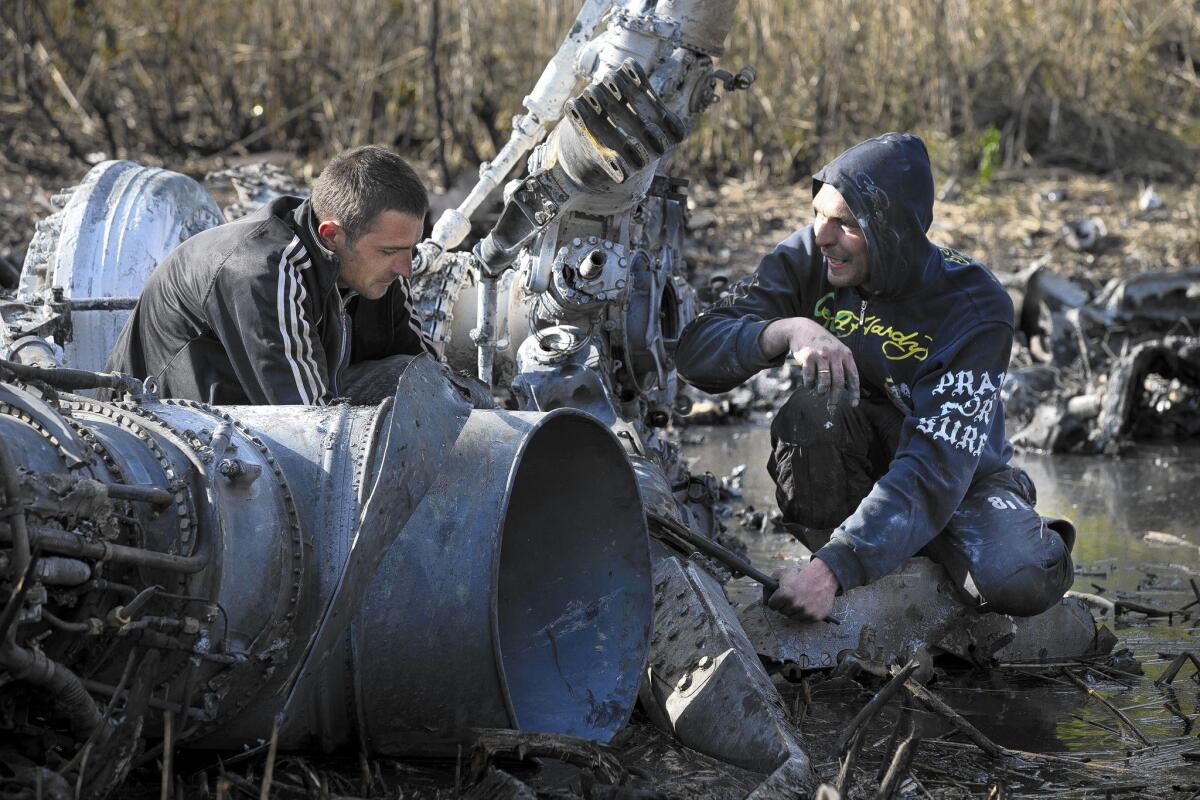Russia says Ukraine vote not valid without talks with separatists

- Share via
Russian Foreign Minister Sergei Lavrov on Tuesday issued a veiled warning that the Kremlin won’t recognize Ukraine’s May 25 presidential election unless the Kiev government first submits to power-sharing talks with pro-Russia separatists in eastern Ukraine.
Lavrov also insisted that Ukraine’s interim government in Kiev recall its armed forces fighting to retake the dozen towns and cities seized by the separatists who Ukrainian and Western leaders contend are armed and instigated by Moscow.
During a speech and news conference in Vienna, Lavrov underscored the Kremlin’s insistence that Ukraine’s leaders agree to constitutional revisions that would shift power from central authorities to the regions. Kiev’s European-allied government has expressed support for reconfiguring the governing structure but not at the barrel of a gun they see as trained on them by proxies of Russian President Vladimir Putin.
Ukrainian Prime Minister Arseny Yatsenyuk has spoken in favor of constitutional revisions that would decentralize authority. But lawmakers on Tuesday rejected a proposal to couple a constitutional referendum with the presidential election, which is in less than three weeks. Deputy Prime Minister Volodymyr Hroisman said that redrafting Ukraine’s governing structure can’t be completed until at least late fall.
Lavrov said it would be “more logical and fair” for Kiev authorities to postpone the presidential election until a new constitution can be written and endorsed by voters.
“Holding elections at a time when the army is deployed against part of the population is quite unusual,” Lavrov observed.
Putin has said the acting Ukrainian government ministers are “coup-installed” and lack authority to make decisions on behalf of the divided country. Although Lavrov signed off on an April 17 agreement with U.S. and European officials to “de-escalate” the crisis in eastern Ukraine, Putin’s ministers and state-controlled media have cast the recent fighting as aggression against Russians by a Kiev leadership intent on oppressing minorities.
Ukrainian interim President Oleksandr Turchynov and Yatsenyuk took power after Kremlin-allied President Viktor Yanukovich was toppled in late February after a three-month rebellion spurred by his decision to abandon an association agreement between Ukraine and the European Union. Yanukovich fled to Russia after agreeing to a coalition government with the political opposition, which included the political parties of Turchynov and Yatsenyuk.
Putin recently acknowledged that he sent Russian troops into Ukraine’s Crimea territory days after Yanukovich fled. Once occupied by Kremlin forces, the Crimean parliament backed local nationalists and staged a referendum on secession from Ukraine and annexation by Russia.
Supporters of Ukrainian unity fear that Russia is repeating the tactic.
Kremlin-allied separatists in Donetsk and Luhansk regions plan a referendum Sunday on whether to give more power to Ukraine’s regions and declare independence from Kiev.
Fighting between Ukrainian government troops and Russia-allied separatists ground to a standoff Tuesday in Slovyansk, a town of 125,000 that has been the focal point of the fighting.
Interior Minister Arsen Avakov said via Facebook that 30 pro-Russia militants had been killed in the last two days and that four Ukrainian soldiers died in the sporadic battles.
More to Read
Sign up for Essential California
The most important California stories and recommendations in your inbox every morning.
You may occasionally receive promotional content from the Los Angeles Times.














